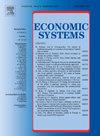消费税政策对福利和公平的影响:应用于意大利的微观-宏观经济方法
IF 3.3
2区 经济学
Q1 ECONOMICS
引用次数: 0
摘要
本文发展了一种微观-宏观建模方法来评估税收政策对经济增长和公平的影响。经验框架得益于微观管理数据的可用性,并纳入了家庭和部门的异质性、税收制度的详细信息和逃税特征。将综合模型应用于意大利统一消费税率改革的结果如下:我们发现该政策对产出产生了积极的影响,尽管对特定行业的增长模式有影响。我们还记录了不同家庭对收入分配的负面影响。我们的研究结果表明,当分析中包括逃税时,对经济增长的积极影响被放大,对出口导向型部门产生重大影响,而对公平的负面影响减弱。在进行了不同的灵敏度检查和替代的集成过程后,结果是有效的。最后,讨论了政策影响。数据声明支持本研究结果的数据可根据作者的合理要求并考虑到意大利经济和财政部的数据披露政策提供。本文章由计算机程序翻译,如有差异,请以英文原文为准。
Welfare and equity impact of consumption tax policies: A micro-macro-economic approach applied to Italy
This paper develops a micro-macro modelling approach to evaluate the impact of tax policies on economic growth and equity. The empirical framework benefits from the availability of micro administrative data and incorporates household- and sector- heterogeneity, detailed information on the tax system, and tax evasion features. The application of the integrated model to a uniform consumption tax rate reform in Italy yields the following results. We find positive output consequences of the policy, though with sector-specific growth patterns. We also document negative impact on income distribution that varies across households. Our results suggest that when tax evasion is included in the analysis, the positive impact on economic growth is amplified, with major consequences on export-oriented sectors, while the negative impact on equity diminishes. The results are valid after performing different sensitivity checks and alternative integration processes. Finally, policy implications are discussed.
Data statement
Data in support of the findings of this study is available from the authors upon reasonable request and considering data disclosure policy at the Italian Ministry of Economy and Finance.
求助全文
通过发布文献求助,成功后即可免费获取论文全文。
去求助
来源期刊

Economic Systems
ECONOMICS-
CiteScore
4.90
自引率
0.00%
发文量
83
审稿时长
48 days
期刊介绍:
Economic Systems is a refereed journal for the analysis of causes and consequences of the significant institutional variety prevailing among developed, developing, and emerging economies, as well as attempts at and proposals for their reform. The journal is open to micro and macro contributions, theoretical as well as empirical, the latter to analyze related topics against the background of country or region-specific experiences. In this respect, Economic Systems retains its long standing interest in the emerging economies of Central and Eastern Europe and other former transition economies, but also encourages contributions that cover any part of the world, including Asia, Latin America, the Middle East, or Africa.
 求助内容:
求助内容: 应助结果提醒方式:
应助结果提醒方式:


